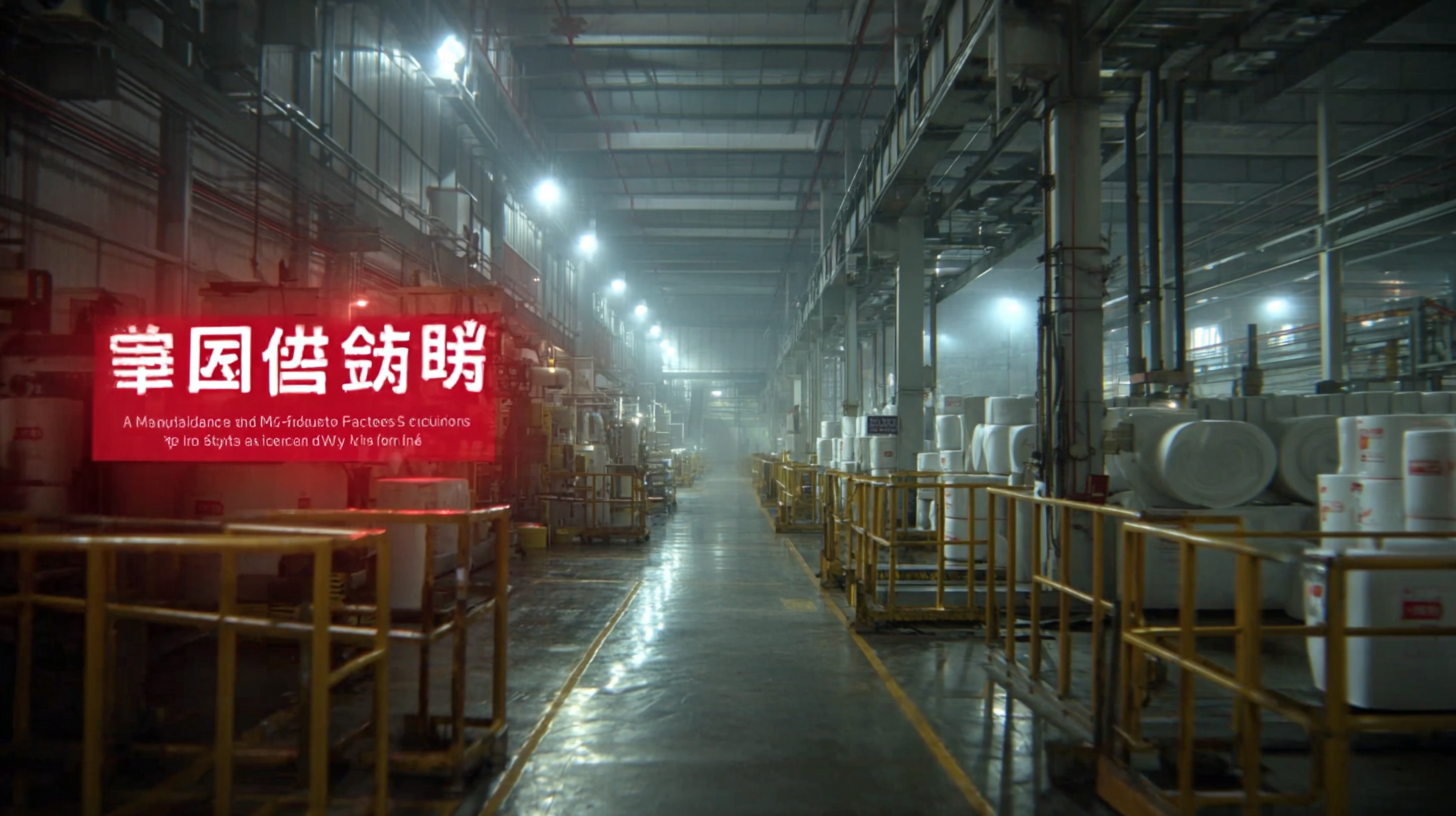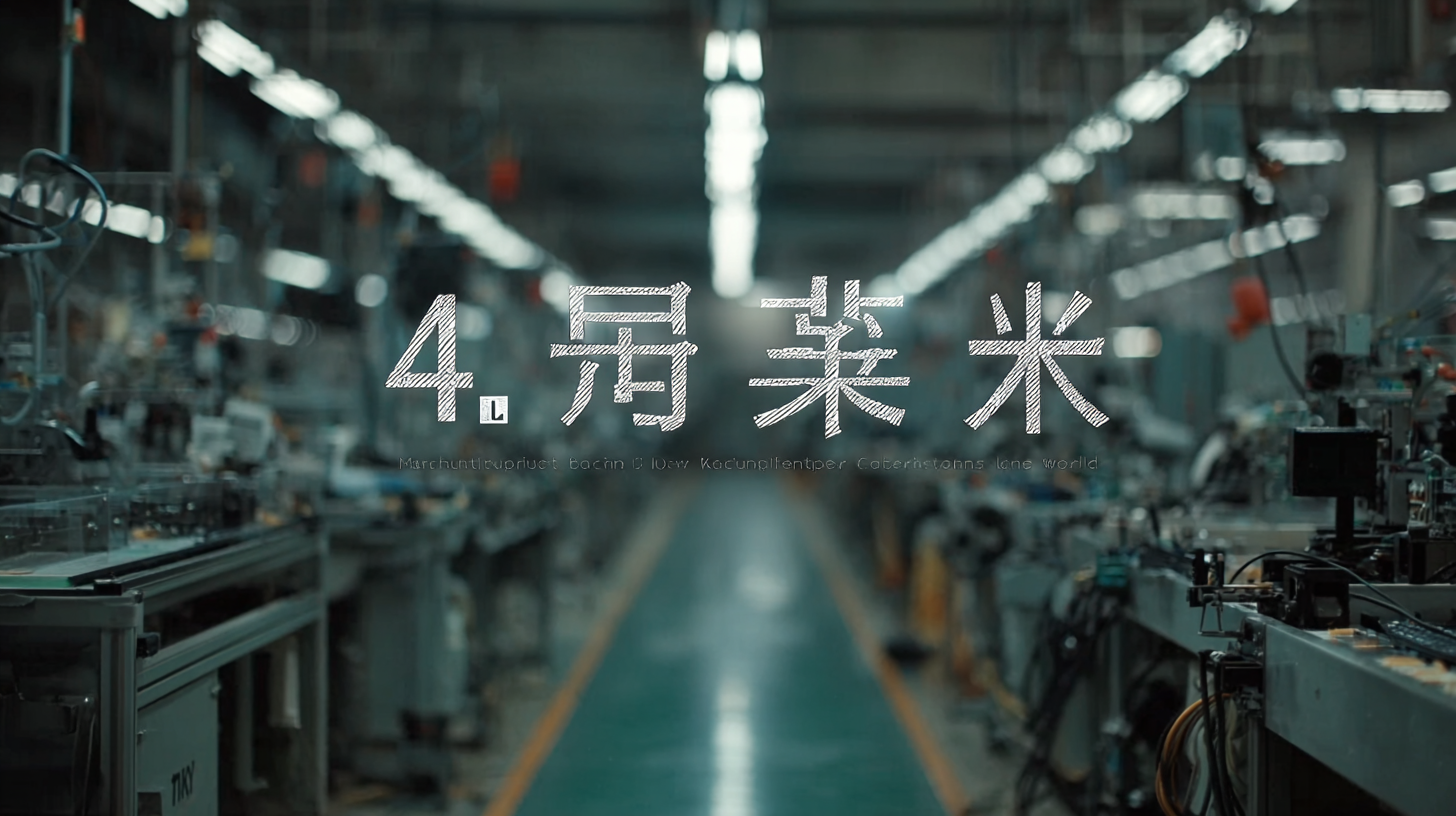

 In recent years, Chinese manufacturers have increasingly risen to prominence in the global marketplace, outpacing their competitors by adhering to rigorous production standards and advancing their technological capabilities. According to a report by the China National Bureau of Statistics, the output value of China's manufacturing sector reached approximately $3.5 trillion in 2022, accounting for nearly 30% of the world's total manufacturing output. This remarkable growth is attributed to a combination of strategic investments in research and development, adherence to international quality certifications, and the ability to scale production efficiently. As a result, exceptional Chinese factories are not only meeting but often exceeding global standards, enabling them to deliver superior products across diverse industries. This trend underscores the crucial role these manufacturers play in the global supply chain, shaping the future of commerce through innovative practices and high-quality standards.
In recent years, Chinese manufacturers have increasingly risen to prominence in the global marketplace, outpacing their competitors by adhering to rigorous production standards and advancing their technological capabilities. According to a report by the China National Bureau of Statistics, the output value of China's manufacturing sector reached approximately $3.5 trillion in 2022, accounting for nearly 30% of the world's total manufacturing output. This remarkable growth is attributed to a combination of strategic investments in research and development, adherence to international quality certifications, and the ability to scale production efficiently. As a result, exceptional Chinese factories are not only meeting but often exceeding global standards, enabling them to deliver superior products across diverse industries. This trend underscores the crucial role these manufacturers play in the global supply chain, shaping the future of commerce through innovative practices and high-quality standards.
Chinese factories have increasingly gained attention for their exceptional quality standards and commitment to delivering superior products globally. According to the International Organization for Standardization (ISO), China is now home to over 40% of the world's certified factories, a testament to its rigorous adherence to quality management systems. This impressive statistic reflects the nation’s industrial evolution, where a combination of advanced technology, skilled labor, and robust quality control processes ensure that products meet international standards.
The focus on export certifications has been pivotal in establishing trust in Chinese manufactured goods. Data from the China Chamber of Commerce for Import and Export of Machinery and Electronic Products indicated that the value of exported goods meeting stringent quality certifications increased by 30% over the past five years. Factories adopting ISO 9001 and ISO 14001 certifications not only enhance their manufacturing processes but also demonstrate a commitment to environmental management that resonates well with global consumers. This strategic prioritization of quality assurance in production helps Chinese manufacturers maintain their competitiveness in the international market while delivering products that consistently exceed customer expectations.
China's manufacturing capabilities have long been at the forefront of global industry, and government regulations play a crucial role in ensuring that these factories deliver superior products. By implementing strict quality control standards and environmental regulations, the Chinese government promotes a culture of excellence among manufacturers. This not only enhances the reputation of Chinese goods but also positions them favorably in international markets.
**Tip:** Businesses seeking to partner with Chinese factories should familiarize themselves with the local regulations. Understanding these guidelines can help foreign companies select manufacturers that comply with quality standards and ethical practices, ensuring the products meet global expectations.
Moreover, government incentives for innovation and technology adoption have led to more efficient manufacturing processes. This progress encourages factories to adopt modern techniques that enhance product quality, making Chinese manufacturers highly competitive globally.
**Tip:** When evaluating potential suppliers, consider their commitment to innovation. Factories that invest in new technologies and adhere to regulations are likely to produce superior quality products, giving your business an edge in the marketplace.
China continues to assert its dominance in global trade, with import and export statistics reflecting the country’s vital role in international commerce. In 2022, China’s exports reached an astounding $3.36 trillion, making it the world's largest exporter. Its manufacturing prowess, combined with advanced technology and efficient supply chains, ensures a steady flow of high-quality products destined for markets around the globe. This growth is bolstered by strong demand for consumer electronics, textiles, and machinery, solidifying China's status as a manufacturing powerhouse.
To thrive in the competitive landscape of global trade, businesses can implement a few strategic tips. Firstly, staying updated with changing trade regulations and tariffs is essential, as they can significantly impact import and export costs. Secondly, establishing strong relationships with reliable Chinese suppliers can lead to better negotiation terms and consistency in product quality. Finally, leveraging digital platforms for supply chain management can enhance efficiency and transparency, allowing companies to respond swiftly to market demands. These strategies can help harness the full potential of China’s manufacturing capabilities, ensuring superior products reach consumers worldwide.
 Chinese factories are increasingly setting global standards through rigorous industry certifications that affirm their commitment to quality and sustainability. For instance, the Zhejiang Aoxing Biotechnology Company recently achieved both ISO 22000 and HACCP certifications, underscoring its excellence in food safety management. These internationally recognized certifications not only elevate the company’s market position but also enhance consumer trust in the quality of Chinese products.
Chinese factories are increasingly setting global standards through rigorous industry certifications that affirm their commitment to quality and sustainability. For instance, the Zhejiang Aoxing Biotechnology Company recently achieved both ISO 22000 and HACCP certifications, underscoring its excellence in food safety management. These internationally recognized certifications not only elevate the company’s market position but also enhance consumer trust in the quality of Chinese products.
Moreover, the SANY Heavy Industry’s pile driver factory in Beijing was recognized as the first "Lighthouse Factory" in the global heavy machinery sector by the World Economic Forum. This designation highlights the factory's advanced automation and digital transformation efforts, making it a benchmark for manufacturing excellence. Similarly, companies like Welling have achieved zero landfill waste certification, exemplifying a progressive movement toward sustainability in manufacturing processes. As Chinese factories embrace these certifications, they are not only optimizing operational efficiencies but also contributing significantly to global sustainability goals, reflecting a broader trend in the industry toward meeting rigorous international standards.
When it comes to importing goods from China, navigating compliance is crucial for ensuring that your products meet international standards and regulations. This process begins with selecting certified manufacturers who abide by local and international laws. A thorough vetting of potential factories is essential; look for certifications like ISO, CE, or RoHS, which signify adherence to quality and safety standards. Engaging with these manufacturers not only guarantees compliance but can also enhance the quality of the products you receive.
Once you've identified certified manufacturers, it's important to establish a clear communication line regarding compliance requirements. This may include understanding the specific documentation needed for customs, such as certificates of origin and compliance, as well as testing reports for product safety. Many manufacturers can assist with this documentation, ensuring that your imports smoothly pass through customs. Keeping updated with changes in trade regulations, such as tariffs and quotas, will further streamline the importing process, making your experience with exceptional Chinese factories both efficient and profitable.
